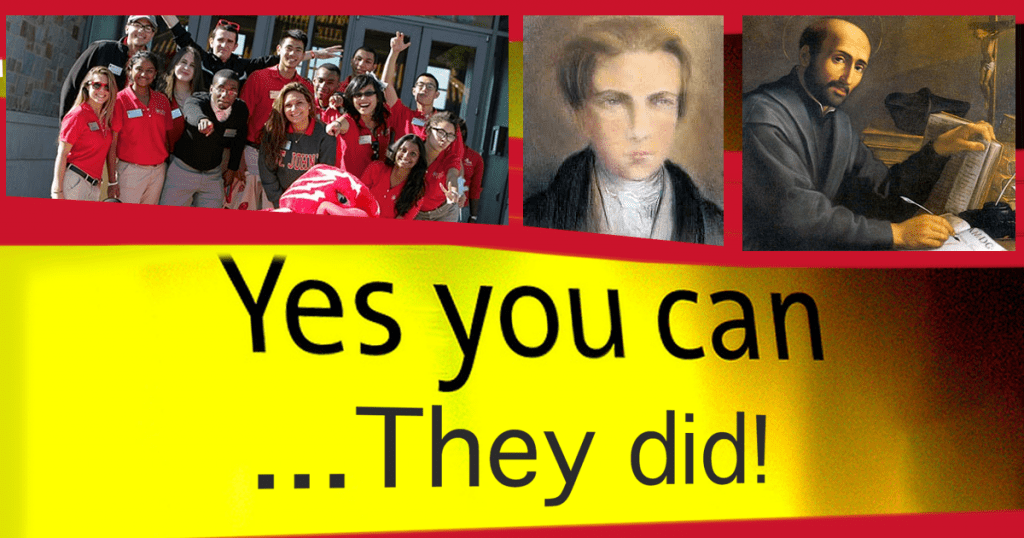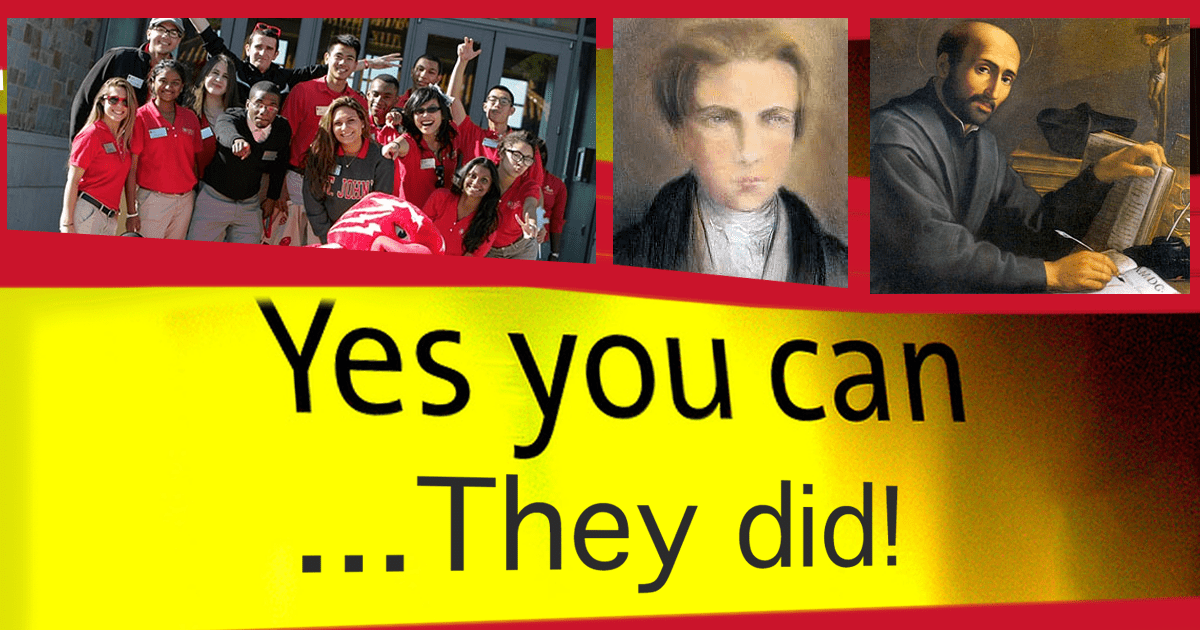Students – Changing Their Worlds
 Students – an untapped resource for changing their worlds.
Students – an untapped resource for changing their worlds.
Think of Frederic Ozanam and Ignatius of Loyola.
Most visitors to .famvin know that the world-wide organization called the Society of St. Vincent de Paul was founded by Frédéric Ozanam when he was a 20 year old university student. He was challenged by another student to put action to his words about his Catholic faith. Along with five other students and an older friend, Emmanuel Bailly, and through the spiritual guidance and practical advice of Sister Rosalie Rendu, DC, the Society of St. Vincent de Paul began. The rest is history as they say. Today the Society lives Ozanam’s dream of circling the globe in a band of love. The motto of the Society is: “No work of Charity is foreign to the Society.” Today there are about 700,000 members serving the poor in 150 countries world wide. Not bad for a 20 year old.
But his was not the first experience of worlds being changed in the context of universities.
Matt Malone, the editor of America magazine has written a reflection raising the question, Did you know the Jesuits were founded in a dorm room?
“…everyone spoke of how, after a thirty-day retreat made under him (Ignatius of Loyola), three Spanish students from the University distributed their goods to the poor, took up residence in the hospice of Saint-Jacques and earned their keep by begging for alms.”
Again, the rest is history. Some other thoughts from Father Malone’s reflection…
Xavier and Faber were reminded of them every time they saw Ignatius limping to and from class. As they got to know one another, Ignatius would have told his new roommates that he acquired his distinctive gait several years earlier during a series of botched attempts to correct the damage done by a cannonball at the Battle of Pamplona. This would have been an awkward moment for the roomies. Though Ignatius and Xavier were both Basque, their families were allied to opposing camps in the never-ending struggle to determine the destiny of what is now northern Spain. What’s more, Xavier’s brother, as Ignatius surely knew, fought on the opposing side at the Battle of Pamplona. If we can let our historical imaginations take flight for a moment, he may even have been the one who ordered the volley that canonized, so to speak, the young Captain Ignatius.
It is remarkable, then, that these two men, Francis Xavier and Ignatius de Loyola, separated in age by 10 years, born into warring factions and of markedly different temperaments, would, with the aid of Faber and several other companions, found the Society of Jesus—what one historian has called “the most vibrant, most provocative religious order the Catholic Church has ever produced.” It is all the more remarkable when one considers that the Basques were better known for their worldly adventures than their saintly virtues. “They were especially prized,” according to Mary Purcell, “as soldiers, shepherds, seafarers and administrators, and widely despised as brawlers and ruffians.” Ignatius was no exception. He tells us in his autobiography (referring to himself in the third person) that “up to his thirtieth year he was a man given to worldly vanities, and having a vain and overpowering desire to gain renown, he found special delight in the exercise of arms.”
It is important to remember that none of these men started life as a saint, but that they grew slowly in holiness only after much struggle, only by the patient grace of God.
As the Vincentian Family struggles to recapture the inspiring and collaborative genius of Vincent who changed the face of France, have we forgotten perhaps about the valuable resource for impact and systemic change sitting in our classrooms today? In my later years as a university professor, I would often ask myself is there a Rosalie or a Frederic sitting in front of me waiting to be inspired.
Questions each of us can ask whether we work in a university context or not…
In my encounters with youth in whatever context, do I see and respect their potential? Do I present them with a vision of what can be when we encourage them to See – Judge – Act?







0 Comments